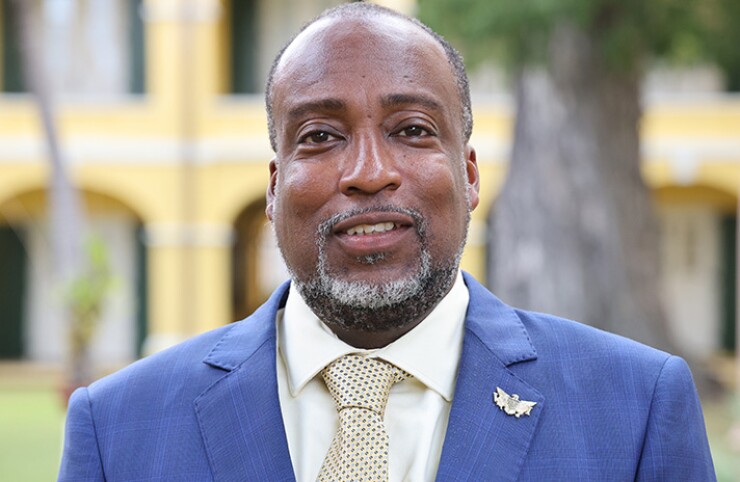Karl Knight was appointed chief executive officer of the U.S. Virgin Islands Water and Power Authority Thursday, effective July 29.
The
Knight was chief of staff to Gov. Albert Bryan, Jr., and reportedly was recommended by the governor to the WAPA board.
“WAPA needs someone who has institutional knowledge about power generation and the will and fortitude to address blatant corruption,” said former Virgin Islands Sen. Kurt Vialet. “Sadly, it appears that the governor has total control of the WAPA board. I am hoping for the best.”
Knight said, “I am honored to return to the Virgin Islands Water and Power Authority in this leadership capacity. My commitment is to take proactive measures to enhance our services, ensuring we meet the highest standards of reliability for our community. Transparency and accountability will be the cornerstones of my leadership, as we work diligently to serve the needs of all Virgin Islanders and support the success of local businesses.”
Knight worked at WAPA as civil engineer and manager of business planning and performance measurement from 1997 to 2004.
In addition to his work for Bryan, he worked as director of the Virgin Islands Energy Office from 2011 to 2015 and as policy advisor to Gov. John de Jongh, Jr., from 2007 to 2011.
Knight holds a Bachelor of Science in civil engineering from Morgan State University in Maryland.
On Wednesday, WAPA released an unaudited financial statement on the EMMA website that said the authority “continues to face
The authority is taking steps in the long term to reduce its expenses, the statement said.
As of May 31, the authority’s electric system had liabilities, including those payable from restricted assets, of $562.2 million. It had $178.6 million in electric system revenue bonds due in more than 12 months plus about $20 million in bond principal and interest payable in the next 12 months and $1.157 billion in total liabilities.
For the year through May 31 its electrical system had $300 million in operating revenues and a net operating loss of $2.5 million.
